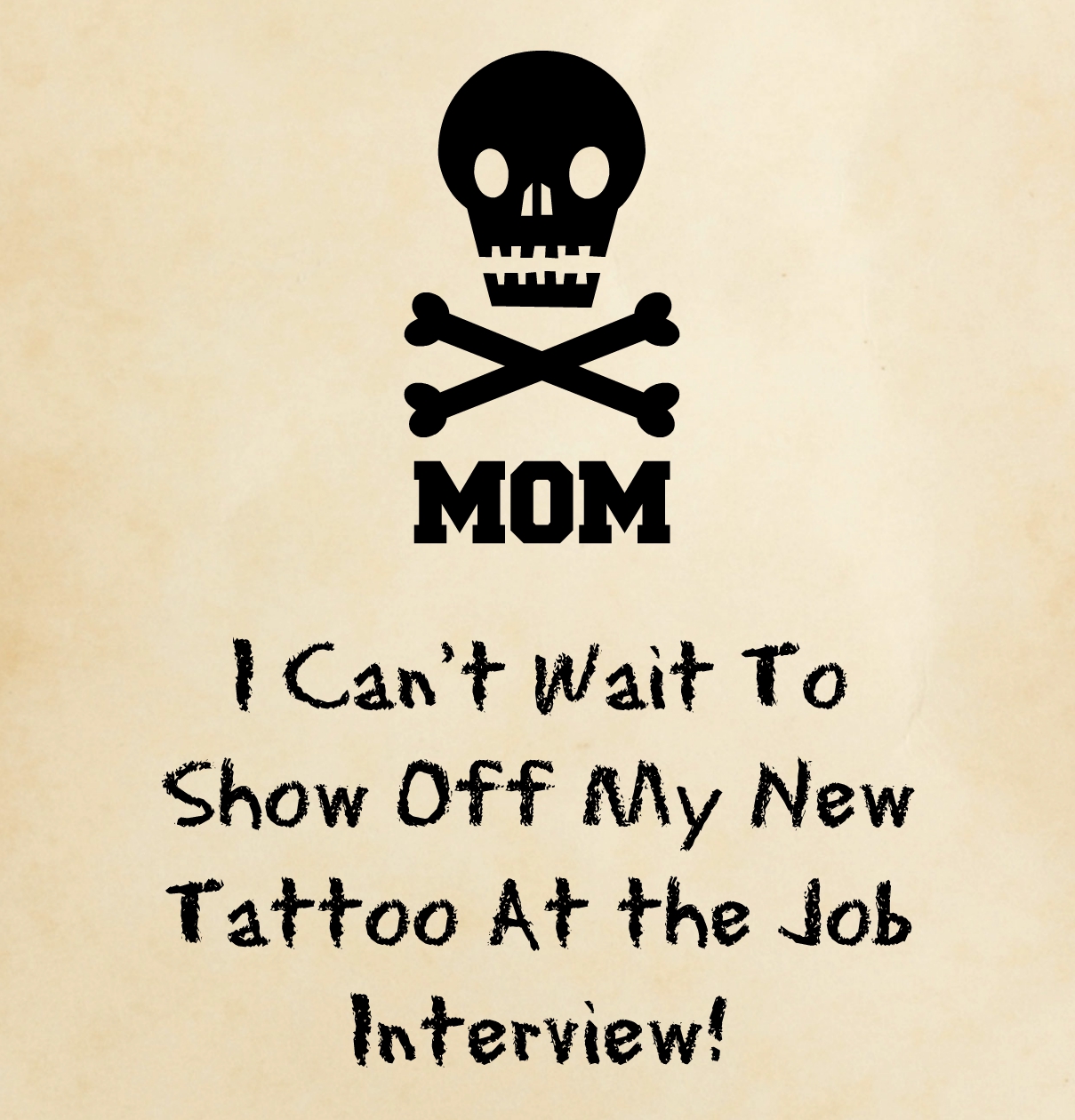Tattoos are becoming more prevalent. Once the domain of the few, body art has gone mainstream. Even grandma has a heart inked onto her bottom. People want to express themselves in a way that accentuates their uniqueness and creativity.
Employers don't necessarily want to stifle individuality. But the truth is that tattoos presents a conundrum for employers. They don't necessarily want to stifle individuality, but they have a certain level of decorum they want to maintain.
And a tattoo isn't necessarily a bad thing, but it doesn't exactly fit within the traditional dress code guidelines companies have established, either.
Then there's the matter of what the tattoos depict. A tattoo featuring naked people might be more objectionable than a simple tattoo that says, "Mom."
Companies can legally decide not to hire a candidate if they feel that an applicant is showing too much ink, or if the subject matter is inappropriate or offensive. In addition, if the role has customer-facing responsibilities, the employer may not wish to place somebody with visible tattoos in such a role.
I realize that those of you with tattoos might find this annoying, or even offensive. But it's true. What (and where) you decide to display on your body makes an impression. So, what do you do if you have a passion for ink, but need to apply for a job?
- Know the culture of where you're interviewing. Some companies may not care. Edgy bars, restaurants and boutiques may view having tats as an asset. Startup tech companies may have no dress code at all and not care a whit about appearance. On the other hand, a stiff-shirt major consultancy with constant client interaction probably won't want to know that you've got a tattoo.
- Cover up during the interview. If you've decorated your arms, make sure you wear long sleeves. If you have tattoos on your upper chest, wear a fully-covering shirt and jacket. Try to make the interviewers focus on you as a candidate, so they don't get distracted and potentially turned off by the tattoos.
- Once you're hired, observe what everybody else does and follow suit. If the employees wear short sleeves and show off arm tattoos, it's probably safe for you to do the same. Follow the lead of your peers.
- Think twice before getting that tattoo somewhere on your body you can't cover it up. I'm all about personal expression, but every decision a person makes has consequences, and this is no exception. Tattoos up the neck and onto the face, or on the hands, are near impossible to cover tactfully. Once you've made the decision to place ink somewhere you can't hide it, you - rightly or not - may have limited your career options. It may not be fair, but it's reality.
Scott Singer is the President and Founder of Insider Career Strategies Resume Writing & Career Coaching, a firm dedicated to guiding job seekers and companies through the job search and hiring process. He is a Human Resources professional and staffing expert with almost two decades of in-house corporate HR and staffing firm experience, and is a Certified Professional Resume Writer (CPRW) and Certified Professional Career Coach (CPCC).
Insider Career Strategies provides resume writing, LinkedIn profile development, and career coaching services, including a free resume review. You can email Scott Singer at scott.singer@insidercs.com, or via the website, www.insidercs.com.





